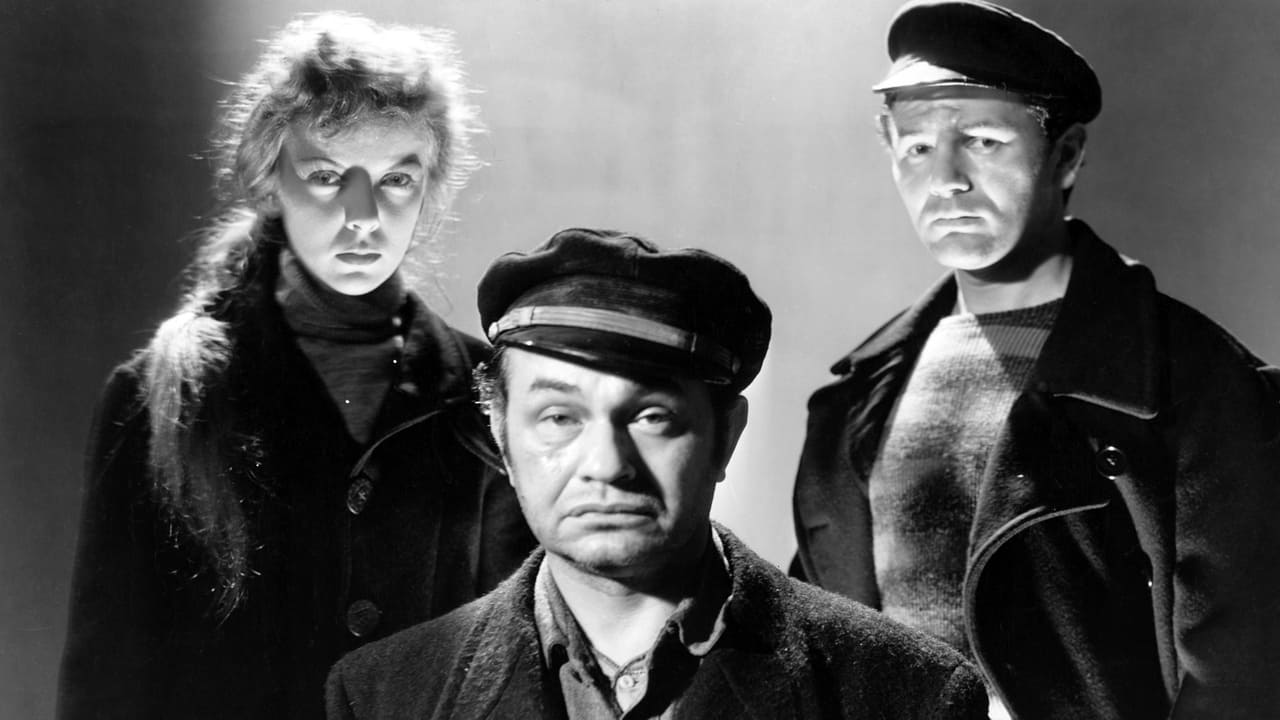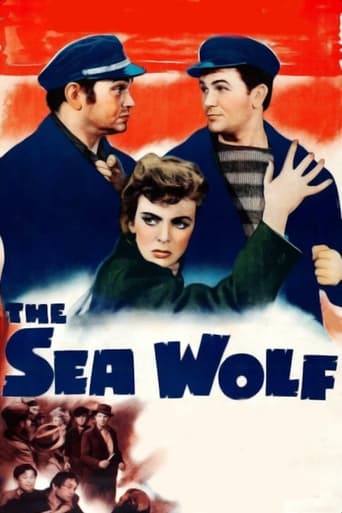

Wonderful character development!
... View MoreDon't listen to the negative reviews
... View MoreBrilliant and touching
... View MoreBlistering performances.
... View MoreA fact little appreciated about the McCarthyite "white terror' in the US is the degree to which its long-term effects have been so long-lasting that one might reasonably describe them as permanent. What is remarkable about all the many commentaries on this film, there is virtually no awareness of its significance in the US politics of the 1940s, this despite the fact that director Curtiz and composer Korngold weer both refugees from Nazism (a fact that Curtiz would dramatise in a remarkable way a few years later in Casablamca), that scenarist Rossen was a Communist, that Robinson was probably Hollywood's most outspoken anti-Fascist, that Garfield would be a leading figure in the resistance to McCarthyism...So forget the vague and confused talk about capitalism and anti-capitalism (although evidently the ultra-capitalist system in the US is relevant) or the talk of the importance of social Darwinism "at the time it was written (Rooseveltian eugenics -Teddy of that ilk). Social Darwinism had never been a more importance issue than it had become in 1941. Leading US eugenecist Leon Whitney's The Passing of the Great Race (1916) was described by a young German fan (Hitler, Adolf by name) as "his Bible" and the Nazis greatly admired the eugenicist systems (compulsory sterilisation) in operation in many US states, and particularly) the model system in force in....California.This version of the Jack London novel is not precisely a political allegory; Wolf Larsen, in many ways a sympathetic figure, is not Hitler although there are inevitably important points of similarity. He is, after all, only the younger brother of "Death". But it is a film noir of sorts rather than just "a ship film" because of its relevance to the political situation both - and that needs to be emphasised - both in Nazi Germany and in the US. The little hell of The Ghost bears a resemblance certainly to the thug-rule of the Nazis but beyond that, in the frame-story, Rossen has built on London's already socialist base a vision of an encroaching police-state (similar to that portrayed in London's later dystopic novel The Iron Heel). It is no coincidence that both the character played by Garfield and that played by Lupino are the subject of police-hunts for reasons we do not know but which we are invited to assume are unserious. The Ghost itself is, as the name applies, is only the reflection of real society (in a premonitory version) . "Inside or out it is all the same"Rossen, Garfield, Robinson (grey-listed despite his eminence) and Knox (obliged to leave the US) were all later victims to some extent or another of McCarthyism, guilty of Communist sympathies or what the witch-hunters would call "premature anti-Fascism" which mean anti-Fascist held prior to...well, any time really.Curtiz, who laid very low, escaped. His communist sympathies went back to his time in Hungary (see the remarkable little propaganda film Jön az öcsém 1919) and was not known about in the US. Although, in the forties, he would also make the strongly pro-Russian Mission to Moscow he could claim (correctly) that this was at the behest of the Roosevelt government (Franklin of that ilk) and, although this was still regarded by the McCarthyites as un-Ameican, it was the studio that was hauled over the coals not the director (one suspects Warners were deliberately protecting Curtiz)."Informing", a systematic weapon of all police-states but particularly important in the case both of Nazism and of McCarthyism, is one of the subjects raised in The Sea Wolf. Brutal interrogation is another theme. "I had a dream, horrible dream. Someone kept on hitting me. I begged them to stop but they just kept on hitting...(sees the captain) it was NO dream". Another theme, relevant to both societies - that of Nazi Germany and the US - is that of the oppression of the already oppressed, the persecution of the already persecuted....Most USians are aware that McCarthyism existed but prefer to regard it (as they do segregational racism!!) as some sort of passing phase. Relatively few seem really aware of the degree to which its ethic remains ingrained in US attitudes. Robert Rossen, constantly interrogated, sick, alcoholic and depressed, who ended by naming names (57 varieties) to the HUAAC, was the most typical victim of McCarthyism, lacking even the dignified response of Dr. Louis J. Precott in the film. He made one very fine film thereafter (The Hustler) but died, in a remarably fitting manner, in 1966 at the age of just....57.
... View MoreThough impossible to know, I'd be willing to bet Jack London himself would have approved of this gritty and tension-filled treatment of his work, it's exceedingly rare that a well-known literary classic, also equals a classic film of the same name - but such is the case for: Jack London's "The Sea Wolf". Directed by Mike Curtiz and released in 1941, this black and white drama on the high seas is one of a handful of drama's I like, everything seems to gel just right, starting with it's terrific casting and fine acting, most especially that of Edward G. Robinson's Oscar-worthy performance in the central role of Captain Wolf Larson. Greatness abounds from the very start in this classic film, with its striking opening title sequence, powerfully enhanced by the best opening theme of Erich Wolfgang Korngolds career, his music fits the film perfectly. Since this is primarily dramatic material, what action there is takes a backseat to an assortment odious personalities and clashing of wills among members of the crew aboard the Ghost, which is the name of Larson's ship, a whaling schooner - but known as a Hell Ship by it's crew.The main point of emphasis of the film is the plight of its principal characters (Ida Lupino, John Garfield and Alexander Knox), who were either forced aboard (by press gang tactic's) fished out of the sea (ship wreck victims) or in Garfield's case, willingly came aboard and the constant air of angst and growing discontent, that's palpable throughout the film. Not enough credit can be given to Edward G. Robinson for his performance, very easily one of his finest hours; beside him are some very colorful and entertaining crew mates, particularly "Cooky", played by the diminutive scene-stealer extraordinaire Barry Fitzgerald. Based upon a solid literary foundation, masterful in it's buildup of mutinous tension and suspense and it's terrifically bleak and cruel atmosphere, The Sea Wolf is an A-rate drama in every sense of the word. Watch it - you won't regret it.Now here's a nugget of interest, for some at least, on the matter of ancient celluloid - long lost. On it's initial release 75 years ago in 1941, the film ran about 15 minutes longer than current prints, however those long-playing prints are now supposedly all lost. Though there has long been rumored of such a print existing in vault owned by the late John Garfield who starred in the film. Naturally, as good as everything else is about The Sea Wolf, I for one would love to see that missing footage. You know John Garfield has been dead since 1952, is this rumored vault really STILL sealed??? Kinda taking on a King Tut's tomb quality isn't it. A Cinematic Intrigue (of cinematic treasure).The Sea Wolf remains one of the great mysteries of home video (or of Warner Video) and as of May 2016 it's yet to be issued on DVD or Blu-ray. It exists on archaic dust-covered VHS, however it's 2016, who watches tapes any more. Catch it on TCM, that's your best option. A real shame this classic film doesn't get the treatment and respect it deserves. WTF WB!!! WTF!!!???**Update** Elated to report that Warner Bros has f-i-n-a-l-l-y released The Sea Wolf on Blu-ray and to put it simply, this 76 year-old film has never looked better and now beautifully rendered in Hi-Def. Also, having been restored to it's original play length of 100 minutes The Sea Wolf now - once again - has all of it's teeth.
... View MoreNo doubt this film is perfectly watchable, mostly due to its relatively short running time, but yet is a very flawed film. The character's development is very shallow, and definitely it lacked depth to explain the supposed 'love triangle'. There is also no explanation of the why the 'brother' was chasing the villain. Even if there is a deep symbolism on it, still does not make any sense. The captain was a very despicable being, but i didn't understand why the prisoners were waiting him to became blind. They were the majority against one. It didn't make sense, and neither the sacrifice of the protagonist in the end as well. I did understand he loved the woman, but i don't understand why he loved her. Didn't make sense. There is no hint in the film that their relationship was even convincing, to be sincere. The special effects were good for the age, i think. Good use of fogs. The fact that it's a black and white film also helped in that aspect. A watchable film. 5.6/10
... View MoreThis is a powerful and well done film and I highly recommend it.The opening of this film has a real sense of mystery. There are sailors being shanghaied, a wonted woman, and dense fog in SanFrancisco. There's a dandy shipwreck scene, and then "The Ghost" ship appears picking up two survivors -- Ida Lupino and Alexander Knox. It's the same ship John Garfield has signed up for to (it appears) get away from the law. The captain is Edward G. Robinson, who makes Captain Queeg look like a nursery rhyme character! And yet, it turns out that he is rather multidimensional -- somewhat of an intellectual.I've always enjoyed Edward G. Robinson, although I tired of his many gangster roles. So this is a welcome change, and one of his finest roles.Never a particular favorite of mine, Gene Lockhart is very good as the usually drunk ship's doctor. And another non-favorite of mine -- Barry Fitzgerald -- is good, and thank god, not as a priest! Though they received up-front billing, Ida Lupino and John Garfield's parts are clearly inferior to those of Robinson and Knox, although their importance to the film increases during the second half of the film....although the latter part of the film is less interesting than the first half.There are a lot of intriguing aspects to this far-better-than-average seafaring adventure.
... View More